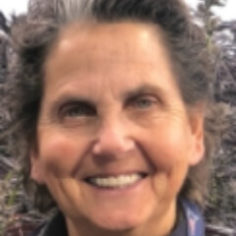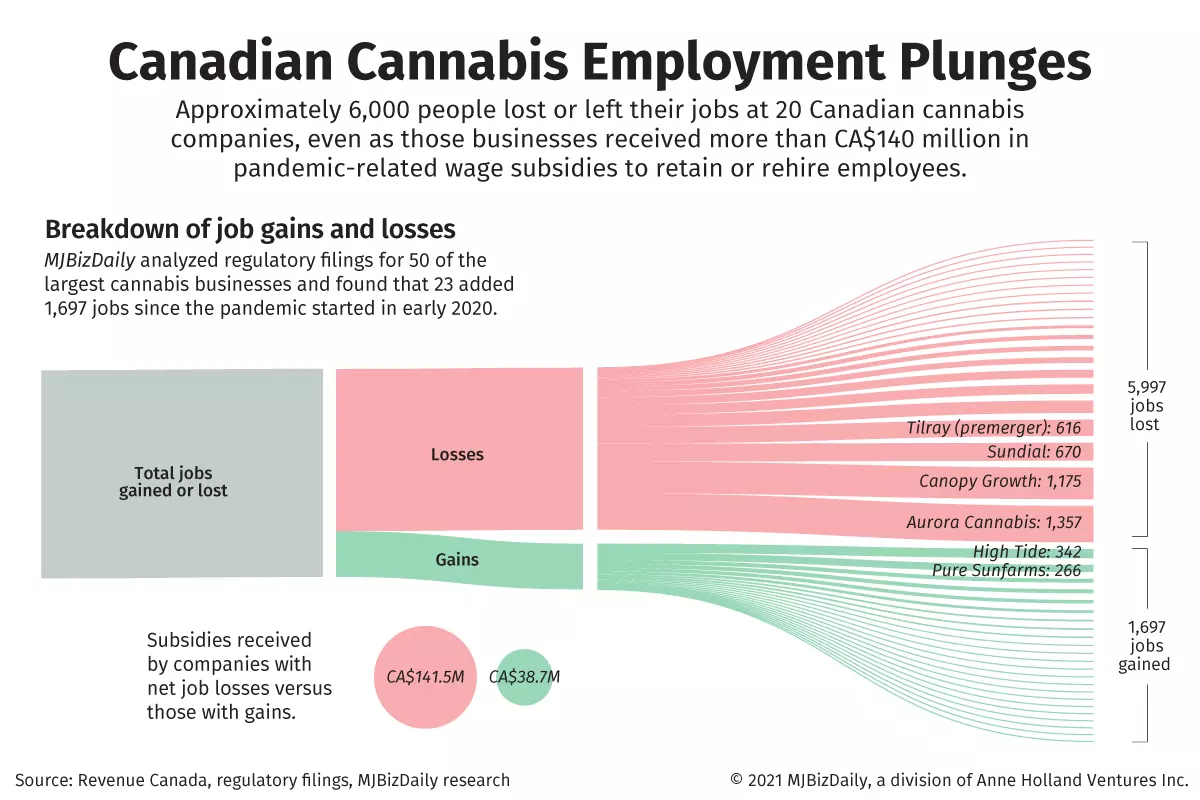Now that the omicron variant of COVID-19 has found its way into the United States, marijuana businesses – particularly retailers – are contemplating how the shifting pandemic situation might affect their daily operations.
MJBizDaily checked in with marijuana stores across the country to see if they’re concerned about the new variant, whether they’re preparing for a possible shutdown and if they’re altering their daily protocols.
The replies were a mixture of worry and confidence, but there also was an undercurrent of readiness to do whatever it takes to continue operations with as much normalcy as possible.
The bottom line seems to be that most marijuana companies – after having survived a year and a half of the coronavirus – have been battle-hardened by the pandemic, which has given operators many tools such as online ordering and curbside pickup to confront any fallout from omicron.
It’s worth recalling that most states declared marijuana businesses “essential” and allowed them to remain open after the coronavirus emerged in this country in early 2020.
Moreover, cannabis sales surged in 2020.
Here’s what industry executives had to say about the potential impact of omicron. Their quotes have been edited for length and clarity:
Johnny Delaplane, co-owner of San Francisco retail shops Project Cannabis and Berner’s on Haight
We follow the local San Francisco Department of Public Health (DPH) orders. They’ve been very thorough and responsive to the variant and the changing situation, so we just follow best practices and what DPH advises.
We still have (personal protective equipment) and everything we need at the store.
We haven’t gone into some post-COVID operations like a lot of bars and restaurants. We’re still, mask up, using PPE, following all our DPH protocols.
So, not a whole lot is going to change for dispensaries.
Are you a social equity cannabis license holder or applicant?
The MJBizCon team is now accepting 2023 Social Equity Scholarship Program applications.
The mission of this program is to provide social equity cannabis license holders or applicants access to the #1 global cannabis industry conference + tradeshow in Las Vegas.
Who can apply?
- Students currently enrolled in a cannabis-related program at an accredited university or college.
- Cannabis executives at licensed social equity cultivation, extraction/processing, retail, manufacturing/brand businesses (or awaiting application approval).
Don’t miss out on this potentially life-changing opportunity.
Apply to attend MJBizCon today – The application period will close on July 24!
We’re going through a fragile economic recovery, and a new variant is going to stop that.
We want people to go out to bars and restaurants and have cannabis, so anything that’s going to slow that down, of course it’s a concern.
But we’re also in a world where we’ve been concerned about this for 18 months or more, and all you can kind of do is take best practices and move forward.
We haven’t changed any of our current COVID protocols as a result of the new variant.
It was the same thing through (the) delta (variant of COVID-19). We just continued with our social distancing and masking and PPE. We haven’t really pivoted or made any big changes.
For us, it’s just, keep doing the right thing and steady as she goes.
Ellen Rosenfeld, president of Massachusetts-based The Commonwealth Cannabis Company (doing business as CommCan)
I am not concerned that the new variant will prompt the governor to shut the adult-use program down.
 I do not believe he will shut any retail down.
I do not believe he will shut any retail down.
We are well-versed in the procedures of social distancing, protecting staff and curbside pickup.
So there will be no hiccup on our end.
We do require that all CommCan employees be vaccinated.
We implemented that many, many months ago. And our employees have responded enthusiastically.
We follow the local guidelines with reference to customers/patients.
I believe that we will seamlessly move into any necessary precautions should the variant necessitate such action.
Peter Marcus, spokesman, Colorado-based multistate operator Terrapin Care Station
Fairly concerned. Enough so that we just once again implemented a companywide mask policy in each state of operation, including Pennsylvania, Michigan, Colorado and Missouri.
We also reminded employees of our “COVID Preparedness and Response Plan,” which, of course, outlines social distancing, wearing PPE, staying home if you’re sick and reporting any possible exposures or symptoms.
Employees are encouraged to take a paid sick day if they’re not feeling well or think they may have been exposed.
Terrapin instituted a companywide vaccine mandate. We are strongly encouraging our employees to receive the booster six months after they received their last dose.
They can earn an additional paid day of leave for receiving the booster so they can recover if needed.
We’re proud to say that Terrapin has not experienced a single workplace-related COVID outbreak over the course of the pandemic. This includes about 500 employees across four states.
Not too concerned about shutdowns currently.
If we’re talking about a cannabis industry shutdown related to the pandemic, the industry has been fortunate to see “essential” status just about everywhere cannabis is legal.
A shutdown could lead to supply shortages and increased product demands. Terrapin is always expanding operations and stockpiling supplies from vendors, mostly because the company is growing so quickly.
With or without the pandemic we’d have contingency plans around supply and product. It’s just our style as a company.
But the pandemic certainly put an emphasis on it.
Samuel Richard, executive director, Arizona Dispensaries Association
Operating within a pandemic atmosphere is not something that is new to us.
Operating with extremely dynamic conditions, both from state regulators, as well as just current events, is absolutely something that our retailers are extremely comfortable doing.
With the additional kind of energy and excitement and, frankly, capital inflow as a result of our launch into adult use, we have not had any issues with kind of supply-chain shortages.
We are not quite on the other end of the spectrum, like in terms of California, where we have too much product flooding us, either. We’re just really in that sweet spot.
(Arizona’s state government has) shown extreme reticence to engage in any type of conversation around another shutdown.
I think that our business leaders, regardless of industry, are operating in a way that (a shutdown) is an unlikely reality.
And our state’s leadership has been very clear that that won’t be something they’re going to entertain, with the current set of facts in front of them right now.
Jason Erkes, chief communications officer, Illinois-based multistate operator Cresco Labs
We’ve been dealing with this now for two years and aren’t changing our business strategy from variant to variant.
It’s business as usual.
(The virus is) going to be around for a while, and people are adapting.
We continuously reevaluate our health and safety standards across the country to make sure we’re doing the best we can to protect our employees and our customers.
Thomas Winstanley, vice president of marketing, Massachusetts-based multistate operator Theory Wellness
I don’t know that I would use the word “concerned,” but I think we’re paying very close attention to it.
 I hate to say that we’re almost, at this point, conditioned to navigate these things in a more routine way, where we keep a very open dialogue (and) we stay very, very close to any emerging details on it.
I hate to say that we’re almost, at this point, conditioned to navigate these things in a more routine way, where we keep a very open dialogue (and) we stay very, very close to any emerging details on it.
It’s not the first time we’ve had to go through this.
(We’re ready to) make any course corrections.
I think we’re “wait and see.” But I think if things were to escalate, we’d be in a good standing to make sure that we could adapt as the market requires to make sure that we stay ahead of it, as opposed to reacting.
I think a big driver for us will always be working with those local health officials who have a much better directive and insight into how we need to react within the marketplace.
I think part of the overall challenge, as with anything, is that information is still coming out, this new variant is still being researched and studied. There are some varying reports out there.
But, again, I think part of the due course of working in the cannabis industry is that you prepare for the unexpected.
Barbie Turner, chief operating officer, Montana-based Alternative ReLeaf
Semi-concerned. Anything new that comes about with this virus makes us pay attention.
With the thriving medical market here in Montana, medically fragile or compromised cardholders are a top safety priority for us.
We are always planning.
Vaccine mandates were made illegal by the Montana Legislature this past session, so that’s not an option. We encourage our staff to be vaccinated through education and resources.
Recreational sales beginning Jan. 1 (in Montana) adds another layer to the unknown.
We will continue to require social distancing and implement another mask policy, if necessary.
Curbside and other methods have proven effective at keeping foot traffic reduced, meanwhile maintaining our sales targets.
All surfaces are sanitized between customers. We encourage social distance. The majority of our staff have been vaccinated.
And we are still sanitizing all of our cash that comes in. That way, it’s sanitized going out.
Lance Robertson, president, Georgia-based CBD City
We have seen an uptick in phone calls in reference to omicron.
 The community has been through this before, and they’re taking control of their own health and wellness needs.
The community has been through this before, and they’re taking control of their own health and wellness needs.
So this is an opportunity. People are really pivoting to holistic health and wellness.
Our community are underserved in medical care. That’s no secret.
So we’re out there educating, getting our message out about what CBD is. We’ve got a YouTube channel; we’re on social media; we’re letting people know how to find the care they need.
We’re positioned well with this turn on omicron. We take education and health and wellness seriously.
We have not identified what can prevent COVID, but we do know CBD is a positive for the body. That message is out.
John Schroyer can be reached at john.schroyer@mjbizdaily.com.
Solomon Israel, Kristen Nichols, Omar Sacirbey and Jeff Smith contributed to this report.





